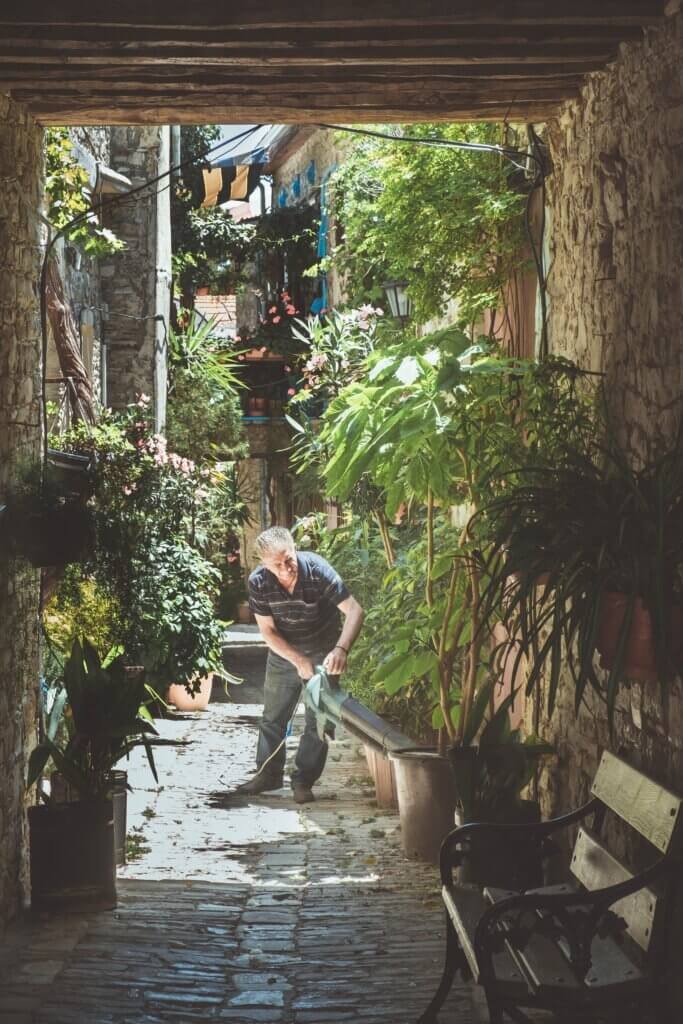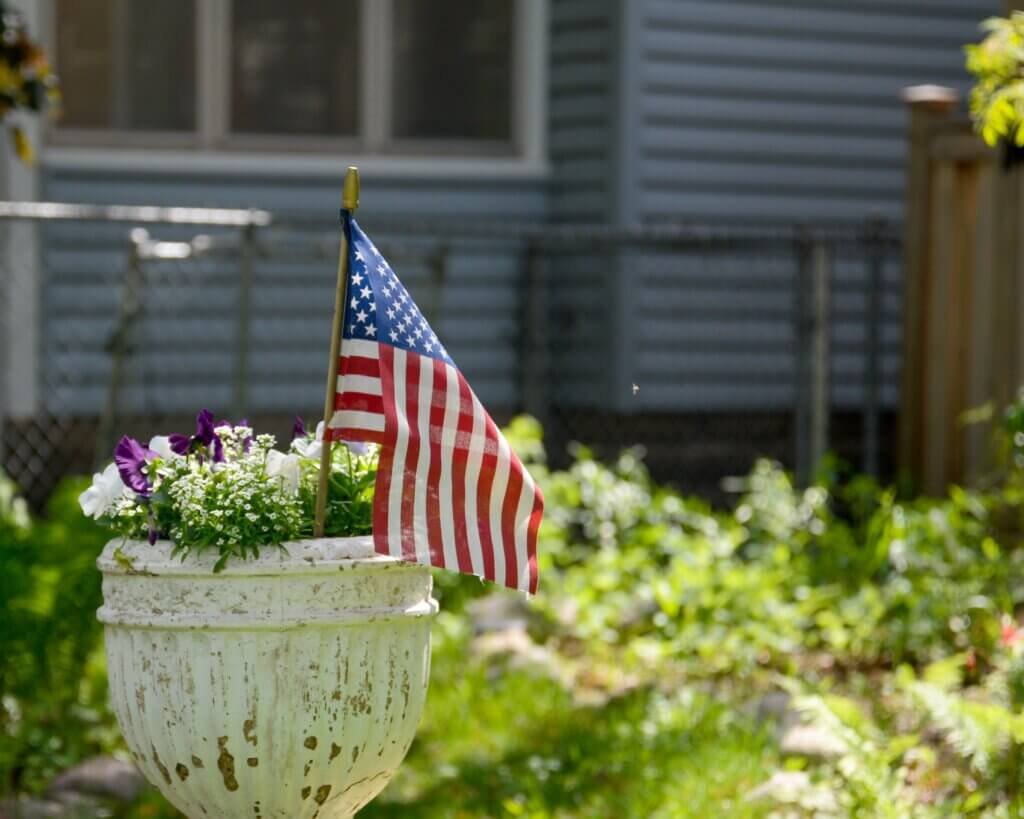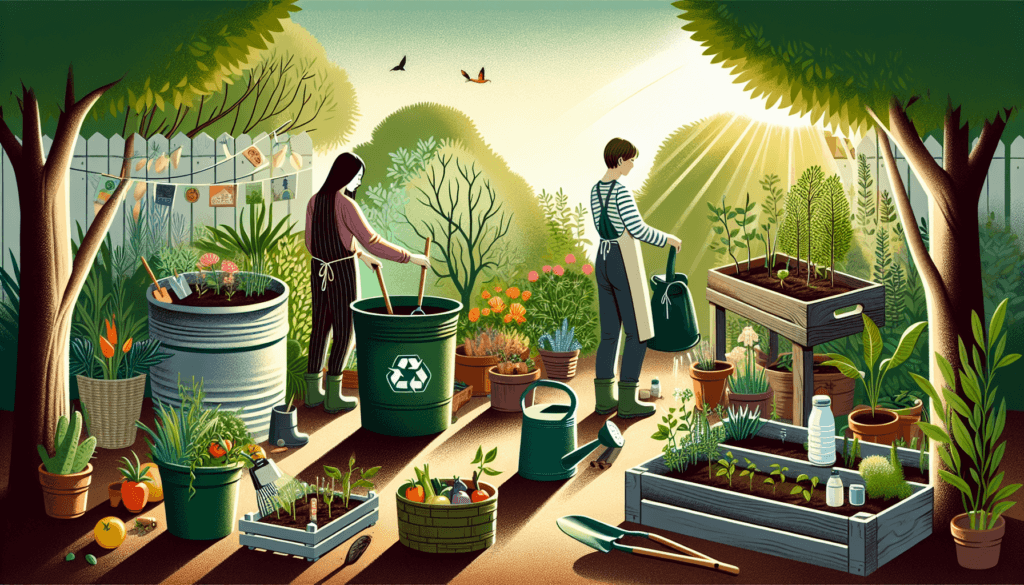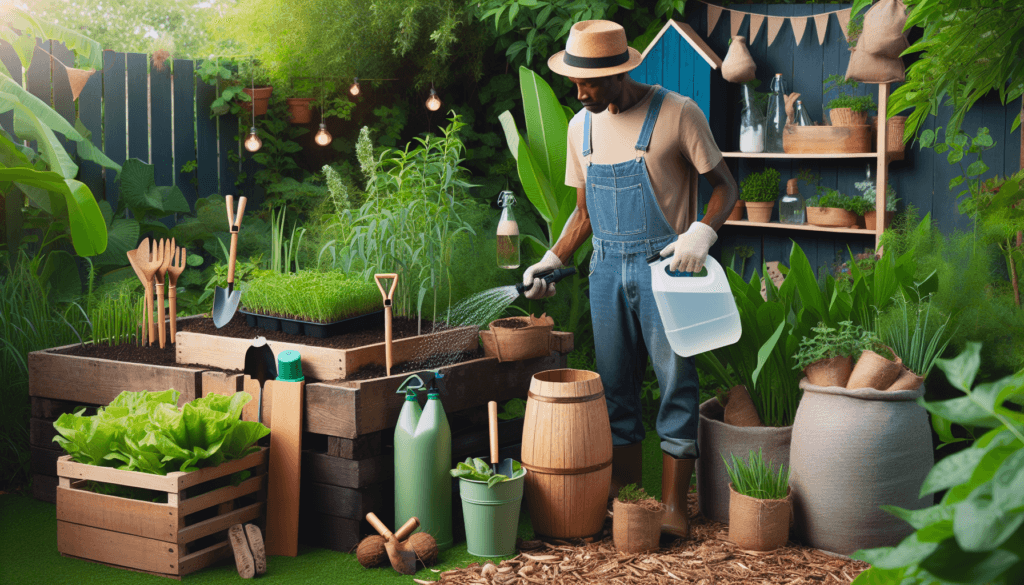Are you a passionate gardener looking for ways to reduce your environmental footprint? Look no further! In this article, you will discover a range of simple and effective tips for reducing single-use plastics in your garden. From eco-friendly alternatives to plastic pots and plant markers to creative upcycling ideas, these tips will empower you to make sustainable choices while nurturing your beloved plants. So, grab your gardening gloves and get ready to embark on a plastic-free gardening journey!

Use alternative materials for plant pots
When it comes to choosing plant pots, there are plenty of eco-friendly alternatives to plastic. One option is to consider biodegradable or compostable pots made from materials like coconut fiber, rice husks, or peat-free compost. These pots will naturally break down over time, reducing waste and leaving no harmful residue behind. Another option is to reuse or repurpose containers that you already have at home. Old buckets, tin cans, or even broken terra cotta pots can be given a new life as plant pots. Not only does this reduce waste, but it also adds a unique touch to your garden. Lastly, consider using natural materials as pots. Coconut shells, woven baskets, or even fabric pots can be great alternatives to plastic pots, adding a rustic and eco-friendly feel to your garden.
Avoid plastic packaging for seedlings and plants
Plastic packaging is a common sight in nurseries and garden centers, but it’s important to remember that it contributes to the global plastic waste problem. To reduce your plastic waste, try buying seedlings and plants from nurseries or local growers that use minimal or no plastic packaging. Look for plants that are sold in biodegradable or compostable pots or wrapped in paper instead. Another option is to grow your own seedlings from seeds. This not only avoids plastic packaging but also gives you the satisfaction of nurturing and growing your plants from scratch.

Opt for sustainable alternatives for plant labels
Plant labels are essential for keeping track of your plants, but there’s no need for them to be made of plastic. Instead, consider using wooden or bamboo labels. These are not only environmentally friendly but also add a natural and rustic touch to your garden. Another creative option is to write directly on stones or bricks and use them as labels. This is a fun DIY project that allows you to get creative with your garden’s aesthetic. You can also paint labels on recycled materials like old tiles, scraps of wood, or even bottle caps. The possibilities are endless, and by using sustainable alternatives, you can reduce your plastic waste in the garden.
Ditch plastic mulch films
Plastic mulch films are commonly used to suppress weeds, conserve moisture, and regulate soil temperature. However, they contribute to plastic pollution when they are discarded after use. Instead of using plastic mulch films, opt for organic mulch materials like straw or wood chips. These natural materials have similar benefits to plastic mulch films but are biodegradable and can enrich the soil as they break down. Another option is to try biodegradable or compostable mulch films made from materials like cornstarch or vegetable fibers. These films will break down over time, reducing the environmental impact. Additionally, you can reduce the need for mulching altogether by planting cover crops, which naturally suppress weeds and enrich the soil.

Switch to eco-friendly watering solutions
Watering your plants is essential for their growth, but the way you do it can have an impact on the environment. Instead of relying on hoses that can be wasteful, consider installing a rainwater harvesting system. This allows you to collect and store rainwater to use for watering your plants, reducing your reliance on tap water. Another eco-friendly option is to use watering cans or buckets instead of hoses. This allows for more precise watering and reduces water waste. If you have a larger garden, you may want to consider drip irrigation systems. These systems deliver water directly to the roots of plants, minimizing water loss through evaporation and ensuring efficient water usage.
Compost and recycle garden waste
Gardens inevitably produce organic waste, but instead of throwing it away, you can turn it into valuable compost. Set up a compost bin in your garden and start composting all your organic waste, including fruit and vegetable scraps, coffee grounds, and garden trimmings. This will not only reduce waste going to landfills but also provide you with nutrient-rich compost to nourish your plants. Additionally, you can use grass clippings and fallen leaves as mulch around your plants, which helps retain moisture, suppress weeds, and enrich the soil. Lastly, be sure to properly recycle any plastic plant tags or containers that you no longer need. Many local recycling centers accept these items, and by recycling them, you can prevent them from ending up in landfills or polluting the environment.

Make your own natural pest repellents
When it comes to pest control in your garden, you don’t need to rely on harmful chemicals or single-use plastic packaging. One effective method is companion planting, that is, planting certain plants together to deter pests. For example, marigolds can repel aphids, while basil can deter mosquitoes. Doing some research and strategically planning your garden layout can help naturally repel pests without the need for synthetic chemicals. Another option is to make organic sprays using ingredients like garlic or neem oil. These natural remedies are safe for the environment and effective at deterring pests. Lastly, you can attract beneficial insects like ladybugs and lacewings, which feed on garden pests. Planting flowers like calendula and dill can help attract these helpful insects and create a balanced ecosystem in your garden.
Avoid single-use plastic garden tools
Investing in high-quality, durable garden tools is not only more cost-effective in the long run but also helps reduce single-use plastic waste. Look for tools made from materials like stainless steel or wood, which are more sustainable and durable than plastic. Additionally, choose tools with wooden or metal handles instead of plastic ones. These materials stand up to wear and tear and can be easily repaired if needed. Instead of throwing away broken tools, try repairing and maintaining them. By taking care of your tools, you can extend their lifespan and reduce the need for new ones, ultimately reducing plastic waste in the garden.

Reduce plastic waste from plant propagations
Plant propagations, such as growing new plants from cuttings, can often involve plastic pots and containers. To reduce plastic waste, consider using peat-free compost, which often comes in biodegradable pots, to grow your new plants. Peat-free compost is more sustainable and helps protect peat bogs, which are important carbon sinks. Another option is to take cuttings from existing plants instead of purchasing new ones. This not only reduces plastic waste but also allows you to propagate plants that you already have and love. Lastly, consider sharing your excess plants with friends, family, or neighbors. This not only reduces plastic waste but also spreads the joy of gardening and encourages a sense of community.
Raise awareness and educate others
One of the most impactful actions you can take is to raise awareness and educate others about the importance of reducing single-use plastics in the garden. Consider organizing workshops or demonstrations on sustainable gardening practices. Share your knowledge and experiences with others, and encourage them to adopt eco-friendly practices in their own gardens. Additionally, leverage the power of social media and blogs to share information and tips on reducing plastic waste in the garden. Engage in conversations with fellow gardeners, both online and offline, to spread the message and inspire positive change. By working together and educating others, we can make a significant difference in reducing single-use plastics and creating a greener, more sustainable future for our gardens and the planet as a whole.


